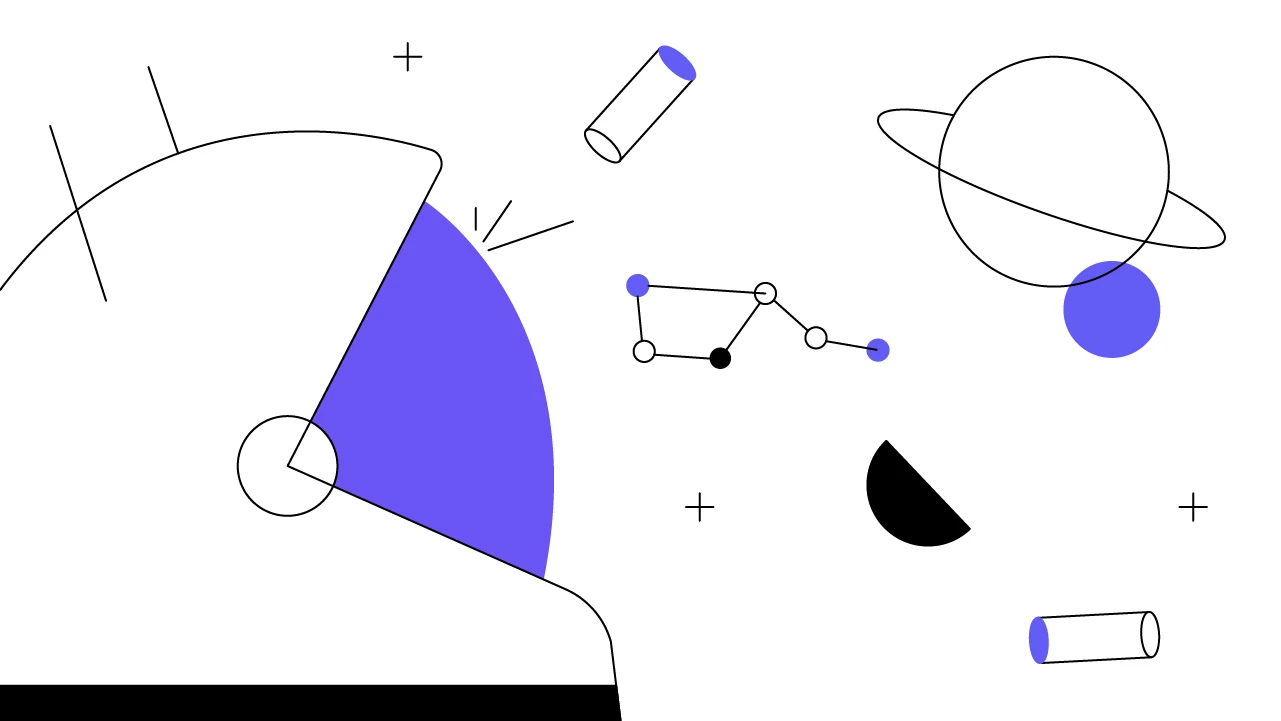Contents
Radicle (RAD): An Open-Source Github Alternative
Designed for programmers, Radicle is a decentralized network that lets coders collaborate without needing a third party.
Updated March 11, 2023 • 4 min read

Summary
Launched in 2018, Radicle is a decentralized network for software development collaboration. A peer-to-peer (P2P) network built on top of a Directed Acyclic Graph (DAG), Radicle also features an optional Ethereum integration that comes with powerful blockchain-based functionalities. The platform’s radicle token (RAD) can be used to vote for on-chain governance proposals and offers discounted fees for users when interacting with its Ethereum-based tools. Radicle is a code collaboration project that aims for high security, censorship resistance, and usability. In keeping with these goals, Radicle can be used without an intermediary, and is even designed to function offline.
What Is Radicle?
Radicle is a software development management platform and decentralized network that enables computer programmers to collaborate on software projects in a peer-to-peer (P2P) fashion. An entirely open-source GitHub alternative, Radicle is free, and designed to be highly secure, user-friendly, and censor-resistant. In keeping with an ethos of accessibility, Radicle can also function in an offline environment. This means it doesn’t require a Domain Name Service (DNS) — or even internet connectivity — in order to function.
By building on open protocols in lieu of centralized platforms, the Radicle team is enabling programmers to collaborate while removing reliance on intermediaries or third parties. Users can freely share coding projects without the need for a permissioned gatekeeper such as a centralized code repository, DNS hosting service, or proprietary collaboration platform or app. The Radicle crypto protocol features community-driven governance mechanisms that are partly controlled by the radicle token (RAD), which uses the ERC-20 tokenization standard.
Radicle Code Storage and Communication Technology
While Radicle was initially built using the InterPlanetary File System (IPFS), the team later decided that the IPFS did not satisfy the performance requirements required by the project. Instead, the Radicle team replaced the IPFS system with Git, which now functions as the storage and replication layer of the Radicle network. Put simply, Radicle uses Git primarily as a database. Built on Git, Radicle is secured by public-key cryptography (PKC) to maintain security and code provenance. In order to facilitate collaboration between parties, Radicle has built a P2P communication layer called Radicle Link. In lieu of traditional client-server architecture, Radicle Link uses a Directed Acyclic Graph (DAG) as the core of its P2P network, a distributed ledger technology similar to blockchain that excels in speed and scalability.
Radicle Link allows coders (or “peers”) to share and spread data by keeping local copies on their personal devices. The more peers who are interested in a specific software project, the more accessible it becomes throughout the Radicle crypto network. Software coding comments, issues, and reviews can be modified and cryptographically signed in an online environment through its use of PKC. For those who use a Git-based code repository such as GitHub, Radicle can be used to create a P2P backup of repositories. This adds security via storage redundancy and reduces reliance on the centralized architecture of third-party servers.
Radicle also features a blockchain-based tool called Radicle Orgs, which allows you to grant access control to code repositories via smart contracts. You can also share Radicle code repositories via your multi-signature wallet (a.k.a. multi-sig wallet), which gives a global team the ability to share access in a transparent and permissioned fashion. Radicle offers a desktop application for both the macOS and Linux operating systems (OSs) as well.
Ethereum Integration: A Radicle Crypto Solution
While not required to use Radicle — which can function as a blockchain-free P2P network — Radicle’s opt-in Ethereum integration allows its users to do things that simply can’t be done on other GitHub alternatives. With its Web3 app (called Radicle Interface), programmers can connect via a compatible crypto wallet. This Radicle crypto integration allows you to connect your Ethereum address to your Radicle ID, which is used to find projects on the Radicle platform.
The integration allows a project to anchor a transparent and auditable history directly on the Ethereum blockchain via the aforementioned Radicle Orgs. Through a multi-sig wallet governance mechanism, a team can collectively decentralize control of their codebase. The creator of a Radicle Org also has the ability to use a standard crypto wallet address (with only one signee/address) that gives them full control over the project.
Another notable Web3-integrated tool is the Radicle Registrar, which allows a project profile to be discoverable within both the Radicle network and the much larger Ethereum ecosystem through its Ethereum Name Service (ENS). In lieu of a DNS, the Radicle Registrar lets you create an ENS domain that is human-readable (ending in “.radicle.eth”) and searchable. Once registered, you can link a website or decentralized social media handles to your ENS.
RAD Tokenomics
The radicle token (RAD) is the tokenomic muscle behind the Radicle crypto ecosystem; it is designed to power the network’s various features while also serving as a way to decentralize governance on the Radicle network. The RAD token serves two primary roles:
It is the governance token that allows users to vote for platform changes that utilize on-chain governance methods. This includes protocol changes and control of the Radicle Treasury, which holds more than 50% of the total RAD supply.
RAD crypto holders receive discounted or free use of Ethereum-based Radicle protocols. Users who don’t have RAD can still use these protocols, but must pay the standard market rate gas fees.
Control of the Radicle Treasury — and other protocols — is managed via a decentralized autonomous organization (DAO). The Radicle DAO is forked from the Compound protocol and uses the same “one token-one vote” governance mechanism. Not part of the original protocol, 100,000,000 RAD tokens were minted on May 5, 2021. These tokens become vested after one-to-four years, depending on their allocation:
50% of RAD tokens go to a community treasury.
19% is allocated to the team.
20% is allocated to early supporters.
11% is allocated to the Radicle foundation, as well as to network promotion and a proposed RAD-bootstrapping liquidity pool.
RAD Crypto and the Future of Code Collaboration
Radicle is democratizing open-source software projects in a fashion similar to what Bitcoin and cryptocurrencies have done for online payments and finance. By removing gatekeepers, decentralized projects are enabling users to freely share content online — be it code or crypto — in a permissionless way. Radicle has already partnered with numerous projects that share its vision via its network-promoting Seeders Program (a Radicle fund), including: Aave, Uniswap, Synthetix, The Graph, Gitcoin, and the Web3 Foundation. The Radicle crypto roadmap includes plans to implement decentralized finance (DeFi) tools and offer support for non-fungible tokens (NFTs). With over a thousand Radicle coding projects completed, this RAD crypto platform has shown that it’s a viable P2P code collaboration platform, one that has the ability to integrate with blockchain-based protocols.
Cryptopedia does not guarantee the reliability of the Site content and shall not be held liable for any errors, omissions, or inaccuracies. The opinions and views expressed in any Cryptopedia article are solely those of the author(s) and do not reflect the opinions of Gemini or its management. The information provided on the Site is for informational purposes only, and it does not constitute an endorsement of any of the products and services discussed or investment, financial, or trading advice. A qualified professional should be consulted prior to making financial decisions. Please visit our Cryptopedia Site Policy to learn more.

Is this article helpful?


